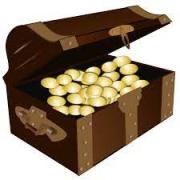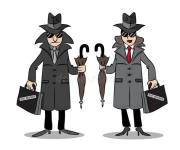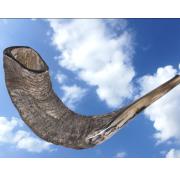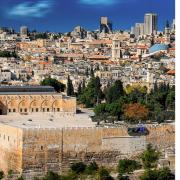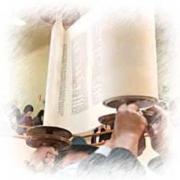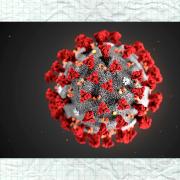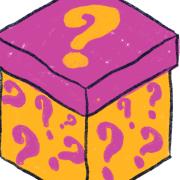The Rejected Trio
In Parashat Ki Tetzeh, we are told of a ceremony called Yibum, also known as levirate marriage. If the man does not want to marry his brother's widow, the ceremony that releases him from this obligation is called Khalitzah.
As always, everything that is about to follow is strictly how I view the verses in the Torah, and is my opinion, and with that said, let's go!!
So, why is the khalitza performed? And why does the woman take off his shoe and spit on his face? I assume you are familiar with the laws and details of this ceremony, so I will proceed directly.
It may all be related to the incident involving The Brothers and Yosef. The Brothers sold the young Yosef and bought shoes with that money. Brothers denied Yosef the opportunity to have his own family, a bright future, and to leave sons after himself, so they sold him to Egypt at a young age. The same is the brother who doesn’t want to take the wife of his deceased brother-in-law, in the ceremony of Khalitzah, denies his dead brother an opportunity to continue his name and leave a descendant in his name, since the one who passed on died childless.
Why does the woman need to spit on his face? The Brothers didn’t - do the selling - with a smile; they did it through anger, screaming, and spit flying from their mouths. The same way a woman needs to spit on his face, as it says in the Parashat Ki Tetzeh 25:9, and in my opinion, this would atone in some way the anger shown by The Brothers, for their spits that flew onto Yosef's face.
Since the whole nation comes from the Brothers, the whole nation needs to atone for this situation. Shoes are not worn during Tisha Be Av, as the money made from their sale was spent on them.
Problems between people often lead to someone "getting sold", or to put it more politely, being thrown out of the community, as happened to Bar Kamzta, which eventually led to the destruction of the Bet Hamikdash. But in reality, on Tisha Be Av, we atone for that same sin of The Brothers, which repeats itself centuries later - a similar scenario, only it played out a bit differently - but still the same old plot where we have failed once again.
It feels like centuries come and go, but we have never graduated or fixed that situation.
But let’s take it a bit further:
Hashem has made a way for us to atone for The Brothers through the couples that have a hard time bringing children into this world, but why through them?
Since Yosef was denied by The Brothers to have a family and was sold to Egypt, Hashem puts the couples - the descendants of The Brothers, and denies them children for some time, thus atoning for what The Brothers did to Yosef HaTzaddik. They experience pain as if like Yosef, who went through his hardships during the time when he was alone and childless - the time before he got married.
The wife in the Khalitza process spits at the brother, since the brother behaves as The Brothers did and causes her not to have a child, and she is in pain. She went through this childless marriage, just buried her husband, and now even this brother denies her a child, and brazenly continues to deny her this last opportunity.
But you may say that Sarah and Rachel also didn’t have children, are they also atoning for Yosef? They are not. That’s why Hashem explicitly says - And Hashem remembered Sarah(Vayera 21:1) and Rachel(Vayetzei 30:22) and gave them children, after that Hashem didn’t remember anyone, He either spoke via an angel to Shimshon’s mother(Judges 13), or Chana - via a prophet (Samuel 1). The rest of the people are atoning for Yosef HaTzaddik till our time.
Hashem hand-picks those couples and awards them to do an atonement for The Brothers, and in the process, Hashem draws them close to Himself. Besides the children, whether they get it or not, their spiritual leap in the process is unbelievably huge and is their highest spiritual reward.
So, if you think about it, we have Yosef HaTzaddik, who was thrown out from the family, then Bar Kamtza was thrown out from the community, and there’s a third personality in the End of Days, the Son of David, with a similar plot.
Every day, the Nation has problems, and will continue to have problems for as long as the situation is not fixed with the Son of David.
There were significant mistakes made with Bar Kamtza and Yosef HaTzaddik.
It says in the Book of Midrash, after the family has united in Egypt, Yosef ate separately from the rest of The Brothers, since Yaakov Avinu didn't make peace between The Brothers, thus Hashem made them go through a hard and bitter Galut later, and on top of it had to punish the ten rabbis in order to atone for The Brothers.
Bar Kamtza had no one on his side - not a single rabbi, and he did what he did, where the Bet Hamikdash got destroyed, millions died, and millions were taken into captivity.
Same way is Mashiach - "He is despised, and isolated from men, a man of pains, and accustomed to illness. As one who hid his face from us; he was despised, and we had no regard for him." as it says in Prophet Isaiah 53:3, an outsider, despised and isolated from men and will be so until he is reinstated into the community. And then, and only then, the problems will stop, and the atonement of the Rejected Trio will be made - Yosef HaTzaddik, Bar Kamtza, and Mashiach Tzidkenu - and then The Brothers will be set Free.
So, Gentlemen - Let's Find This Guy & Let’s Bring The Redemption!!
- Part 2 -
But as always, let's go even deeper.
The question is, why does the widow need to remove the shoe from her Brother-in-law?
The Parashat Mikeitz says that the brothers took off the Ketonet Pasim from Yosef, and now the widow - the descendant of The Brothers, needs to take off the shoe from the brother's foot, and he will be called as - the one whose shoe was removed, as if marking him with a title that he has behaved like The Brothers who took off the Ketonet Pasim from Yosef.
But why Hashem makes the lady suffer, and why is she left without a child?
The widow is atoning for Reuven, who suggested throwing Yosef into the pit, hoping to save him later; he should have saved him right then and there. When Reuven came back, the child, Yosef, was gone, and Reuven had no child to bring back to his father. So is the widow, at the mercy of her Brother-in-law, who refuses to marry her; thus, she walks away without a child.
Why does her husband die childless?
The husband dies, since The Brothers removed the Ketonet Pasim and sold Yosef with anger, they showed their evil side, thus ensuring that he won’t have descendants, and the atonement for this is death.
Why, in all of this, does the widow seem to be suffering the most?
In a previous article, we discussed the mistake Adam made. (Below is just a snippet, but please refer to the full essay located at this address, for context and whole idea behind every word presented.)
“In Parashat Bereshit, Chava gave Adam HaRishon a fruit from the Tree of the Knowledge of Good and Evil, and he ate it. In Bereshit 3:6 says, "וַתֵּ֣רֶא הָֽאִשָּׁ֡ה כִּ֣י טוֹב֩ הָעֵ֨ץ לְמַאֲכָ֜ל וְכִ֧י תַֽאֲוָה־ה֣וּא לָעֵינַ֗יִם וְנֶחְמָ֤ד הָעֵץ֙ לְהַשְׂכִּ֔יל וַתִּקַּ֥ח מִפִּרְי֖וֹ וַתֹּאכַ֑ל וַתִּתֵּ֧ן גַּם־לְאִישָׁ֛הּ עִמָּ֖הּ וַיֹּאכַֽל׃ - When the woman saw that the tree was good for eating and a delight to the eyes, and that the tree was desirable as a source of wisdom, she took of its fruit and ate. She also gave some to her husband, and he ate."
Per Oral Torah tradition, the word לְאִישָׁ֛הּ - Le Yisha is translated as to her husband, due to a dagesh in the Hey - a dot in the last letter Hey. But as you know, when the text is written in the Sefer Torah, it has no vowels and no dagesh is written there, and the word לאישה - Le Yisha could also be translated as To a Woman, as if Chavah passed the fruit to a woman.
To me, it seems that Hashem belittled Adam HaRishon because he thoughtlessly agreed with his wife and went along with her, not standing up to her, not protesting, and eating when she offered him the fruit. That exact fruit from the tree that Hashem told him not to eat from. He had only this one commandment to keep, but he went along and sinned and went against the word of G-d.”
The widow is atoning for Chava, since she was the cause of Adam's fall. Reuven has followed in the footsteps of Adam HaRishon and has fallen, just like Adam did. Adam HaRishon thoughtlessly, without giving it too much thought, has taken the fruit from Chava, while ignoring the word of Hashem. In the same way, Reuven thoughtlessly moved the bed of Yaakov Avinu, without thinking of his father's response and its consequences.
I call upon all of the Reuvenites of Today, who thoughtlessly and carelessly break the word of G-d, be it towards them and G-d, or them and other people. When or how will you atone for your thoughtless and evil schemes of the past?
How serious are these thoughtless sins, you ask? As a punishment, Reuven has lost it all - birthright, priesthood, and kingship.
So, what do we stand to lose??
Shmuel Katanov






